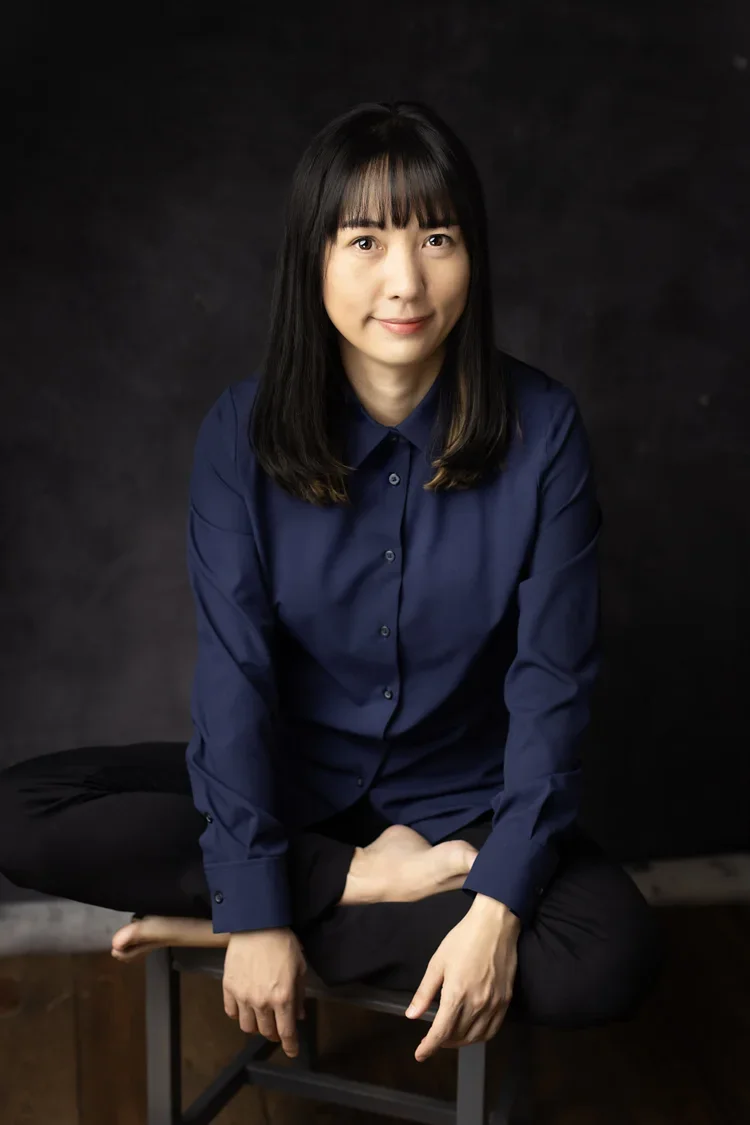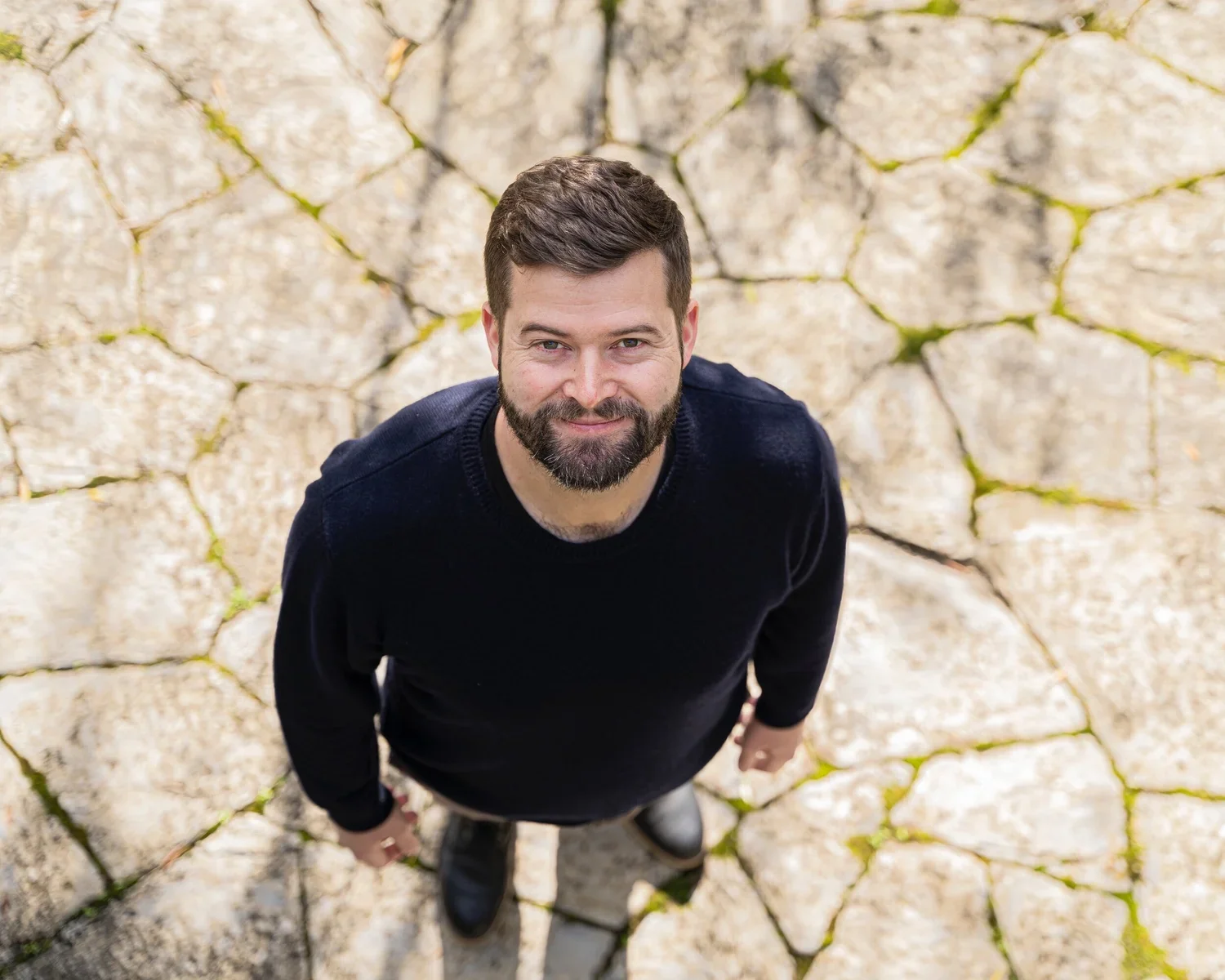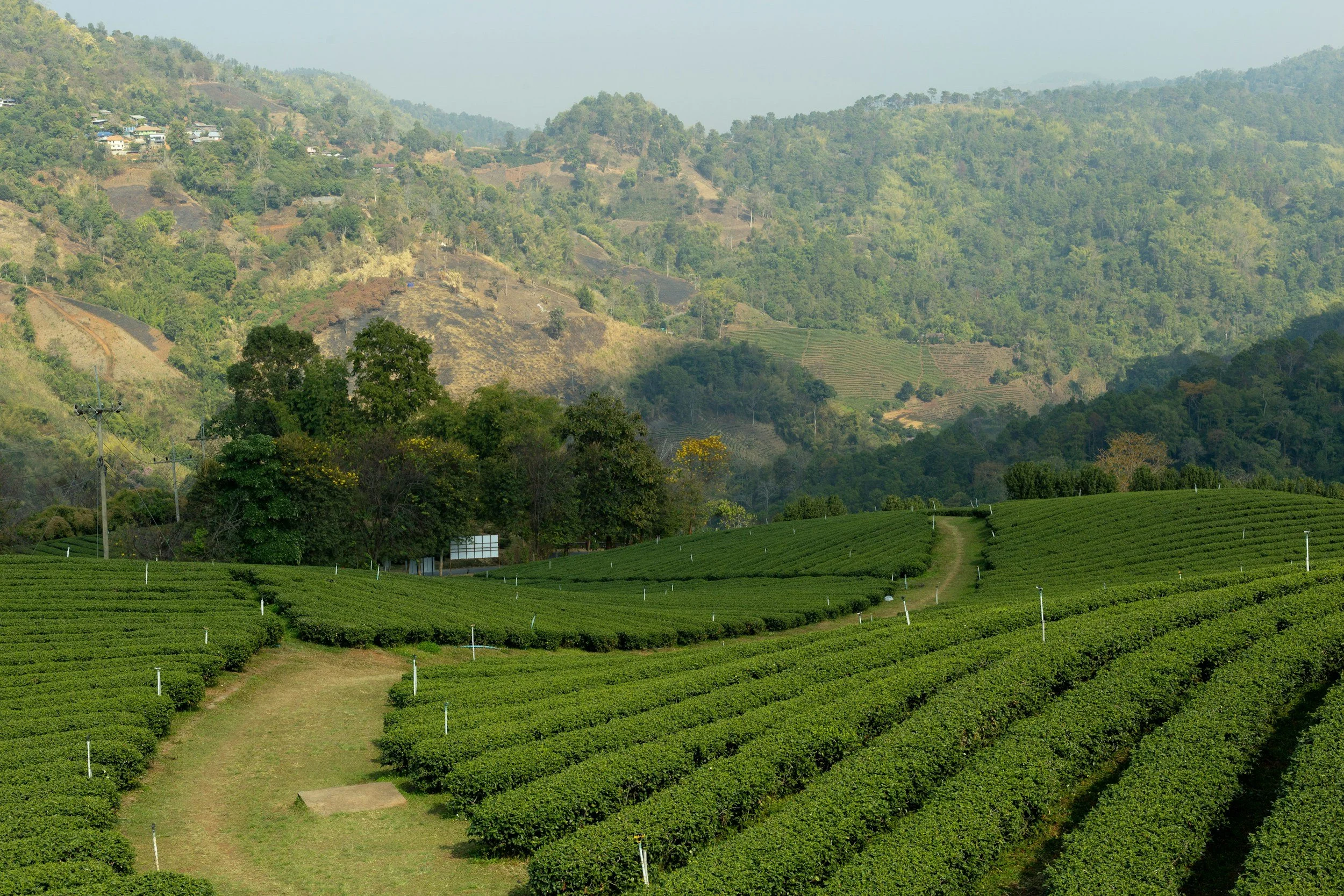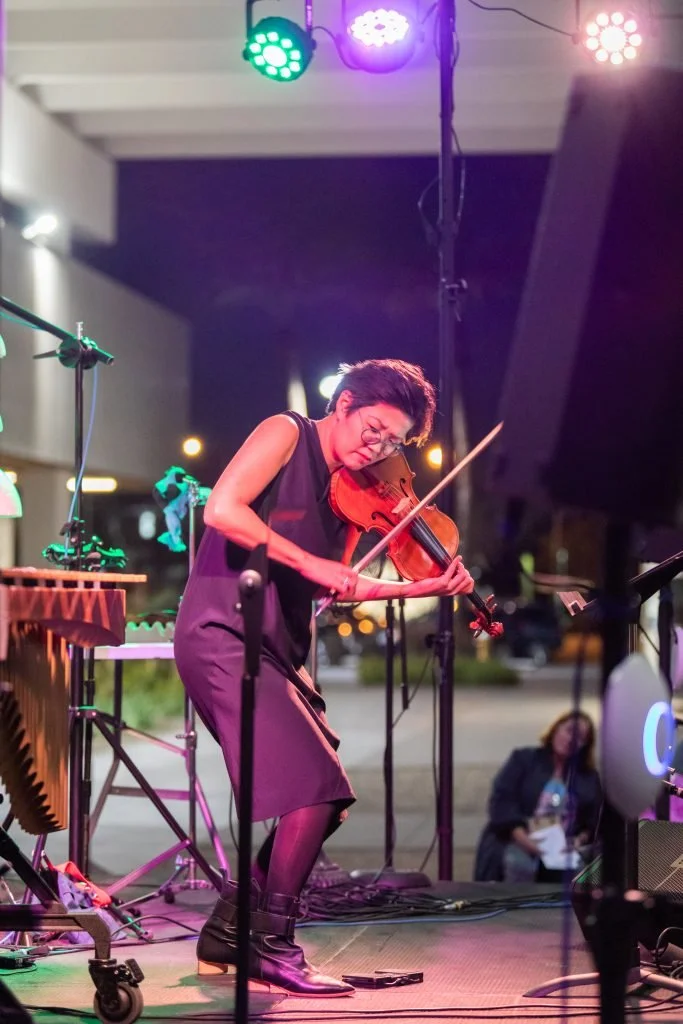EAST | WEST
About the Project:
In East | West, violinist Clara Kim and geomungo artist Iksoo Heo come together in a unique musical collaboration that explores cultural exchange, artistic discovery, and - at its core - a shared humanity. This program is both a reflection and a celebration of Eastern and Western musical traditions, offering works that honor the past while embracing new, boundary-crossing creations.
The performance spans from the deeply rooted Korean sanjo, an improvisational solo genre with origins in shamanic ritual, to contemporary electro-acoustic music. In Christopher Stark’s 2nd Nature, composed for violin and electronics, field recordings of cicadas from northern Thailand are looped, distorted, and transformed, merging the raw sounds of nature with modern digital textures.
Newly commissioned works by composers Juri Seo and Thomas Osborne complete the program. By uniting the distinctly different voices of the violin and geomungo, Seo and Osborne craft innovative sound worlds that blend cultural traditions and open fresh creative pathways.
East | West is more than a concert, it’s an invitation to listen across boundaries, to hear the unfamiliar alongside the familiar, and to experience how music can bridge worlds.
Program:
Thomas Osborne: New commission for violin and geomungo
Christopher Stark: 2nd Nature for violin and electronics
(intermission)
Sanjo for solo geomungo
Juri Seo: New commission for violin and geomungo
(Total: 70 min)
About Iksoo:
These performances reflect Heo’s approach to music as a living conversation between composer and performer, rooted in tradition yet open to innovation. Critics have described his playing as possessing “profound and expansive resonance,” praising his ability to “expand the sonic universe of the geomungo.” Rather than functioning solely as an interpreter, Heo often collaborates deeply with composers, contributing structurally and emotionally to the music’s formation. His artistic practice blurs the lines between performer, co-creator, and storyteller.
Heo’s excellence has been recognized through multiple national awards, including the Grand Prize (President’s Award) at the Nangi Traditional Music Competition and a Gold prize at the Dong-A Korean Music Competition. Beyond the stage, he is the director of San (산), a traditional music research group, which serves as a platform for scholarship, creation, and dialogue in Korean music.
Most notably, he founded and currently leads the “Traditional Instrument Innovation Research Institute” at Chugye University for the Arts, the first of its kind within the school. The institute is dedicated to reimagining the performance environment for traditional instruments, focusing on instrumental modification and development to meet the demands of contemporary stages. Through this work, Heo bridges academic research with practical experimentation, ensuring the vitality and relevance of traditional Korean instruments in modern contexts.
Today, Heo Ik-soo stands as one of the most compelling figures in Korean music— someone who safeguards its spiritual core while actively rewriting its future. His performances and research projects have reached global audiences through international festivals, intercultural collaborations, and academic residencies. With his work, he not only conveys the voice of a nation, but also offers a shared human resonance that transcends borders and time.
Heo Ik-soo is a geomungo (traditional Korean zither) virtuoso who embodies a rare synthesis of performer, educator, and collaborator. With a foundation rooted in Korea’s profound musical heritage, he has devoted his career to reinterpreting traditional aesthetics through contemporary sensibilities. He holds Bachelor’s, Master’s, and Doctoral degrees in Korean Traditional Music from Seoul National University, where he developed both his theoretical depth and performance mastery. He is currently a professor in the Department of Korean Music at Chugye University for the Arts.
Heo previously served as the principal geomungo player of the Gyeonggi Sinawi Orchestra, where he played a central role in advancing Korea’s traditional sound on modern stages. Throughout his career, he has presented annual solo recitals that showcase newly commissioned works and original interpretations of geomungo music. These concerts transcend the boundary of tradition, offering soundscapes imbued with philosophical narrative and artistic inquiry. One of his most acclaimed projects is the 2012 performance of “Silver Hand”, a collaboration with German composer Severin Behnen, in which geomungo was combined with a Western orchestra to explore mythic imagery and emotional resonance. In his 2015 solo recital “Hetero”, he premiered six newly composed pieces— such as Malreun Sum (Clear Breath), Talchul (Escape), and Haereul Jabaya (To Catch the Sun) —demonstrating the expressive breadth and future potential of the instrument.
About the Composers:
Thomas Osborne
Professor of Composition and Theory
University of Hawai‘i
A composer whose music draws inspiration from a wide variety of sources, places, and eras, Thomas Osborne’s work explores the intersections between sound worlds.
He has received commissions from the National Orchestra of Korea, the Pittsburgh New Music Ensemble, the New York Youth Symphony, Korean gayageum soloist Ji-Young Yi, the Hawaii Saxophone Foundation, the Intermezzo Chamber Music Series (Salt Lake City), the IronWorks Percussion Duo, Korean piri soloist Chiwan Park, and Ebb and Flow Arts, among others. His music has been performed by such notable American ensembles and performers as the American Composers Orchestra, the Cabrillo Festival Orchestra, the Pacific Symphony, the T’ang Quartet, pianist Jason Hardink, percussionist Matthew McClung, the Cassatt Quartet, Aperio: Music of the Americas, and many others.
Thomas Osborne has also written for many Asian traditional performers, including those from Korea (Contemporary Music Ensemble-Korea, gayageum soloist Ji-young Yi , the Busan National Gugak Center Korean traditional orchestra), Japan (AURA-J, Kyo-Shin-An Arts, Duo Yumeno), and China (pipa soloist Yang Jing, the Chinese Music Virtuosi). He spent 2012-13 in Seoul, South Korea, in residence at Seoul National University as a Fulbright Scholar, composing music for Korean instruments and giving guest lectures at universities throughout Asia, and he is on the faculty of the Center for Korean Studies.
His music has been recorded by Aperio: Music of the Americas, the Inoo-Kallay Duo (percussion/piano), saxophonist Todd Yukumoto, Duo Vio-LINK-oto (violin/koto), singer Rachel Schutz and pipaist Yang Jing, and pianist Derek Keali‘i Polischuk. He has received awards from BMI and was named the 2013 Distinguished Composer of the Year by the Music Teachers National Association. He has received degrees from Indiana University, Rice University and the University of Southern California, and his principal teachers have included Edward Applebaum, Claude Baker, Donald Crockett, Don Freund, Arthur Gottschalk, and Stephen Hartke.
Active as a conductor of contemporary music, he has led the premieres of dozens of works. He is the director of the University of Hawai‘i Contemporary Music Ensemble, a group that regularly presents music by living composers from the West and from the Asia/Pacific region. He has lived in Honolulu since 2006, and is Professor of Composition and Theory at the University of Hawai‘i.
Recent projects have included composing the score for A Paradise Lost, a documentary focused on one of Hawai‘i’s most endangered bird species, a new concerto for geomungo and Korean traditional orchestra, commissioned by the Seoul Metropolitan Traditional Orchestra, and a work for wind quintet and percussion for Chamber Music Hawaiʻi.
Juri Seo
Professor of Composition
Princeton University
Juri Seo (b. 1981.12.31) is a Korean-born American composer based in Princeton, New Jersey. She seeks to write music that encompasses extreme contrast through compositions that are unified and fluid, yet complex. She merges many of the fascinating aspects of music from the past century—in particular its expanded timbral palette and unorthodox approach to structure—with a deep love of functional tonality, counterpoint, and classical form. With its fast-changing tempi and dynamics, her music explores the serious and the humorous, the lyrical and the violent, the tranquil and the obsessive. She hopes to create music that loves, that makes a positive change in the world—however small—through the people who are willing to listen.
Her composition honors include a Guggenheim Fellowship, a Koussevitzky Commission from the Library of Congress, a Goddard Lieberson Fellowship and the Andrew Imbrie Award from the American Academy of Arts and Letters, the Kate Neal Kinley Memorial Fellowship, the Ilshin Composer Prize, and the Otto Eckstein Fellowship from Tanglewood. She has received commissions from prominent organizations including the Fromm Foundation, the Barlow Endowment, the Folger Shakespeare Library, Goethe Institut, and Tanglewood. She has released four portrait albums: Obsolete Music with the New Amsterdam Records, Toy Store with Carrier Records, and Mostly Piano and Respiri with Innova Recordings. She holds a D.M.A. (Dissertation: Jonathan Harvey's String Quartets, 2013) from the University of Illinois at Urbana-Champaign where she studied with Reynold Tharp. She is Professor of Music at Princeton University.
Juri lives in Lawrenceville, just outside of Princeton, with her husband, percussionist Mark Eichenberger and a little mutt named Roman.
Christopher Stark
Associate Professor of Composition
Washington University
Christopher Stark (b. 1980, St. Ignatius, MT) is a composer of contemporary classical music deeply rooted in the American West. Having spent his formative years in rural western Montana, his music is always seeking to capture the expansive energy of this quintessential American landscape. Stark, whose music The New York Times has called, "fetching and colorful," has been awarded prizes from the American Academy in Rome, the GuggenheimFoundation, the Fromm Foundation at Harvard, Chamber Music America, ASCAP, and the Barlow Endowment. Named a 2017 "Rising Star" by the St. Louis Post-Dispatch, his music has been performed by such ensembles as Alarm Will Sound, Los Angeles Philharmonic, American Composers Orchestra, BIT20 Ensemble, Left Coast Chamber Ensemble, Momenta Quartet, Unheard-of//Ensemble, No Exit New Music Ensemble, and New Morse Code. In 2012, he was a resident composer at Civitella Ranieri, a fifteenth-century castle in Umbria, Italy, and in June of 2016 he was awarded a residency at Copland House. Recent highlights included performances at the 2016 Santa Fe Chamber Music Festival and at the Whitney Museum of American Art as part of the 2016 NY Phil Biennial. In 2018, he was in residence in Bergen, Norway where he worked with musicians from the Bergen Philharmonic, and in 2020, he was in residence at the Bogliasco Foundation in Italy as the Aaron Copland Fellow in Music. His score for the feature-length film, "Novitiate," premiered at Sundance in January of 2017 and was theatrically released by Sony Pictures Classics. His debut CD, Seasonal Music, was released in 2019 on Bridge Records.















